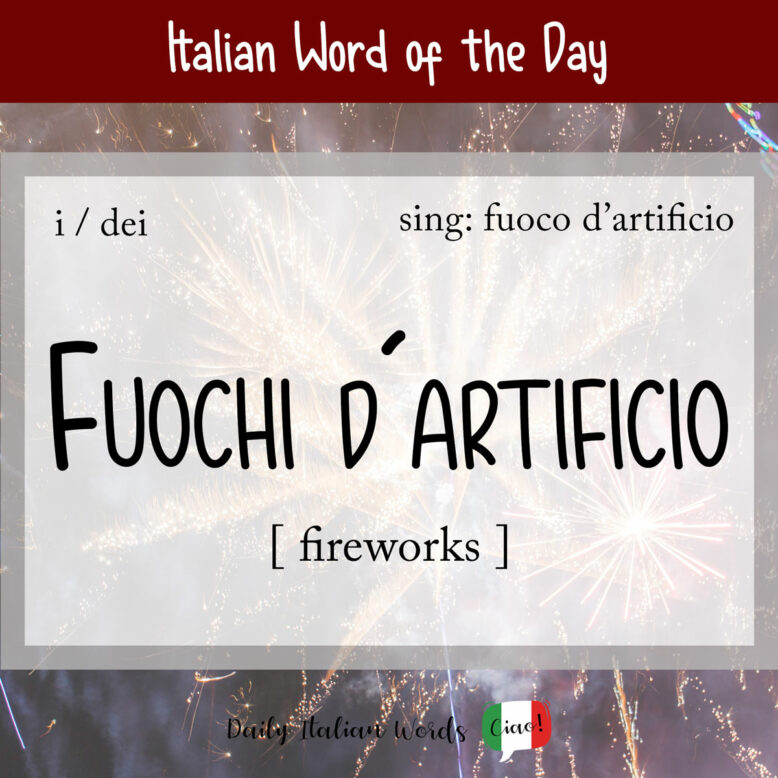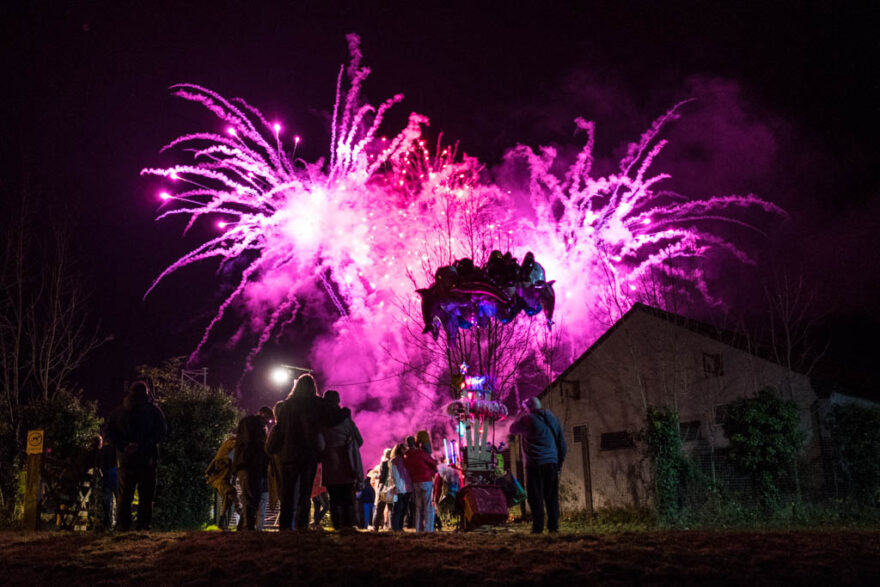The word for fireworks in Italian is made up of two terms: fuochi which means fires (singular: fuoco) and artificio meaning artifice (plural: artifici).

Setting off fireworks at midnight is a popular way of ringing in the New Year all across the world.
Dove posso vedere i fuochi d’artificio di Capodanno?
Where can I see the New Year’s fireworks?
Two less common ways of saying fireworks are fuochi pirotecnici (pyrotechnics fires) or fuochi artificiali – literally artificial fires. You can abbreviate all these expressions to just fuochi if all parties are aware that the subject of the conversation is fireworks and not some other kind of fire.
I fuochi di capodanno sono una tradizione diffusa in tutto il mondo.
New Year fireworks are a worldwide tradition.

There are many different kinds of fireworks you might see used during a firework display (spettacolo pirotecnico). These include:
- petardo = banger / petard
- girandola = Catherine wheel / pinwheel
- mortaretto = firecracker
- botto = firecracker
- castagnola = firecracker
- razzo = rocket
- candela romana = Roman candle
- stellina = sparkler
In Italy, the fuochi di capodanno (New Year’s fireworks) always cause some controversy (polemica). Animals are scared of the noise, and the buying of cheap illegal petardi and fuochi often results in injuries (ferite).
Did you know that…? The Chinese were the first to make fireworks. It is believed they made explosive rockets in the 6th century CE during the Sung dynasty (960–1279CE).
Heather Broster is a graduate with honours in linguistics from the University of Western Ontario. She is an aspiring polyglot, proficient in English and Italian, as well as Japanese, Welsh, and French to varying degrees of fluency. Originally from Toronto, Heather has resided in various countries, notably Italy for a period of six years. Her primary focus lies in the fields of language acquisition, education, and bilingual instruction.


